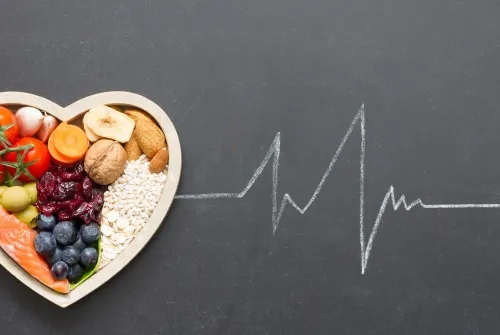Alo Yeditepe
Alo Yeditepe
Long-Term Low Carbohydrate Consumption Triggers Heart Disease
Cardiology Specialist Prof. Dr. Muzaffer Değertekin drew attention to the details of the meeting of the European Society of Cardiology. Prof. Dr. Değertekin said, "Low carbohydrate consumption for many years increases the risk of heart disease by 20 percent. Therefore, the daily carbohydrate consumption should not fall below 200 grams.”
Adequate nutrition and physical activity are important for heart health. On the other hand, mistakes made for the sake of losing weight can negatively affect heart health. Making statements before September 29, World Heart Day, Yeditepe University Hospitals Cardiology Department Head Prof. Dr. Muzaffer Valentekin announced the details of the European Society of Cardiology meeting held recently.
Twenty-five Thousand People Were Followed Up For 10 Years
Stating that important developments took place at the European Society of Cardiology meeting held in Paris, the capital of France, Prof. Dr. Muzaffer Değertekin, said the following:
“At the meeting, about 30 thousand colleagues of ours evaluated the latest developments. In the latest studies, about 450 thousand people were screened. While 25 thousand people were followed up for nearly ten years. During the follow-up, the patients were divided into four groups according to their eating habits, carbohydrate consumption, and fat ratio. At the end of the study, the risk of heart disease was found to be 20 percent higher in people who continued a low-carbohydrate diet after reaching their normal weight. A low-carbohydrate diet is quite helpful for the short term, but continuing such a diet for ten years leads to heart disease. This study shows that persistently continuing low carbohydrate consumption after reaching the ideal weight may not always be good for the heart.”
Balance the Carbohydrate Ratio and Sports
Expressing that it is healthy to change your lifestyle after reaching the ideal weight, Prof. Dr. Muzaffer Değertekin made the following evaluation: “If you consume high ratios of carbohydrates, you should bring your consumption under control. But you should not reduce carbohydrate consumption too much. Studies show that it should not be lowered below 200 grams per day. It is important to exercise regularly. The more you maintain your physical activities, the more your metabolism will speed up. The point is to be protected from heart disease risk factors. In other words, smoking and saturated fat consumption should be significantly restricted. Apart from these, it is necessary to pay attention to exercise and balanced nutrition.”
Beware of Frequent Weight Gain and Loss
Explaining that obesity is a severe health problem, but shock diets and frequent weight gain and loss also negatively affect the heart, Prof. Dr. Muzaffer Değertekin made the following warnings:
"Obesity is a severe health problem in terms of heart attack and irregular heart rhythm. It is necessary to protect against obesity, but this must continue throughout life. Because if obesity persists for a long time, the risk of heart disease severely increases. It aggravates the rhythm problem and then comes before us as a stroke. Heart rhythm disorders can occur, especially in people who experience frequent and rapid weight changes. This rhythm problem then causes a stroke. For this reason, a regular weight loss method should be followed by avoiding gaining and losing weight quickly. Most importantly, to be protected from lifelong obesity. If you stay obese for many years, the risk of heart disease will severely affect you. Even if shock diets are somewhat effective, they will adversely affect your heart rhythm, causing a stroke risk.”
Press Coverage: milliyet | hürriyet | posta | CNNTürk
This content was prepared by Yeditepe University Hospitals Medical Editorial Board.
Alo Yeditepe


